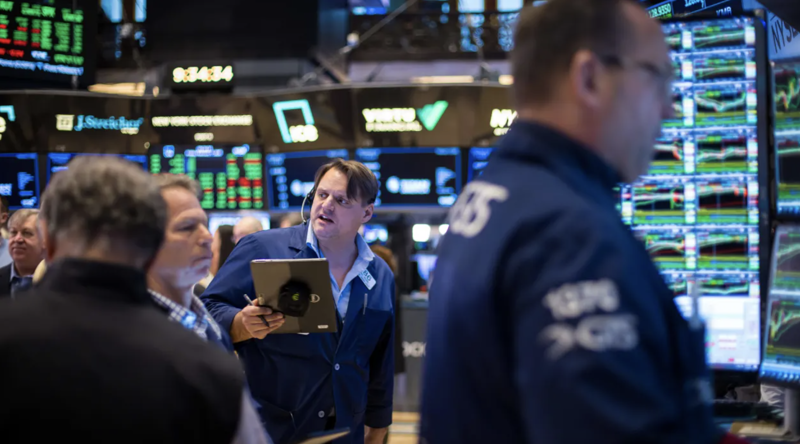The U.S. stock market climbed on Monday (Feb. 10), as technology and metal stocks “shined,” and investors seemed to temporarily set aside concerns about President Donald Trump’s tariff plans. Crude oil prices also rebounded strongly after several consecutive declines due to trade war pressures.
At the close, the Dow Jones Industrial Average rose 167.01 points, or 0.38%, to 44,470.41 points. The S&P 500 gained 0.67%, closing at 6,066.44 points. The Nasdaq jumped 0.98% to 19,714.27 points.
This rally occurred amid lingering uncertainty over inflation and the potential economic impact of President Trump’s tariff policies.
After the market closed, on Monday evening in the White House’s Oval Office, Trump signed an executive order imposing a 25% tariff on imported steel and aluminum. He also stated his intention to implement reciprocal tariffs on all countries and introduce new tariffs on various products, including chips, automobiles, and pharmaceuticals. Last week, the U.S. leader imposed a 10% tariff on all Chinese imports.
Steel and Chip Stocks Shine
Shares of U.S. steel and aluminum producers soared at the start of the week. U.S. Steel and Nucor saw gains of 4.8% and 5.6%, respectively. Cleveland-Cliffs surged nearly 18%, while Alcoa closed up 2.2%.
Alongside metal stocks, semiconductor shares also played a key role in Monday’s rally. Investor sentiment toward tech stocks, particularly chips, improved after the sector was hit by a sell-off in January due to concerns over the rise of Chinese AI startup DeepSeek.
Nvidia closed up 2.9%, Broadcom climbed 4.5%, and Micron gained 3.9%. Major Big Tech stocks, including Alphabet, Amazon, and Microsoft, also ended the session in positive territory.
“Volatility related to DeepSeek and tariff concerns cannot shake our optimistic view of risk assets, especially in the U.S. In the short term, tariff-related fluctuations will persist… But we still maintain our S&P 500 target of 6,500 points by year-end,” said Fabio Bassi, a strategist at JPMorgan Chase, in a report.
Key Economic Events This Week
Beyond tariff developments, several important U.S. economic events are on the horizon this week. Federal Reserve Chairman Jerome Powell will deliver his semi-annual monetary policy testimony before Congress on Tuesday and Wednesday. Additionally, the U.S. Department of Labor will release two key inflation reports—Consumer Price Index (CPI) on Wednesday and Producer Price Index (PPI) on Thursday.
Oil Prices Surge Amid Tariff Uncertainty
In the energy market, Brent crude futures in London jumped $1.21 per barrel, or 1.62%, to settle at $75.87 per barrel. WTI crude futures in New York climbed $1.32 per barrel, or 1.86%, closing at $72.32 per barrel.
Last week, oil prices fell for a third consecutive week amid fears that a global trade war could drag down energy demand.
According to Onyx Capital’s head of research Harry Tchilinguirian, tariff uncertainties continue to cast a shadow over the oil market. However, risk appetite in the stock market is having a positive effect on crude prices.
IG analyst Tony Sycamore noted that investors now realize they will have to deal with tariff-related news for weeks and months ahead. “It seems investors are concluding that the best approach is to avoid overreacting to daily headlines,” he said.
A report from Citi suggested that Trump’s push for increased sanctions on Iran and the failure to reach an agreement on Tehran’s nuclear program could drive oil prices higher. Meanwhile, one of Trump’s key promises for this term has been to lower energy prices.
However, the Citi report also stated: “We see energy prices potentially stabilizing or declining over the next month, with fundamental downward pressure on oil prices growing in our base case scenario for the year.”
The report projected that Brent crude will average around $60-65 per barrel in the second half of the year, as Trump remains patient in his efforts to bring oil prices down and asserts his influence over the market.




